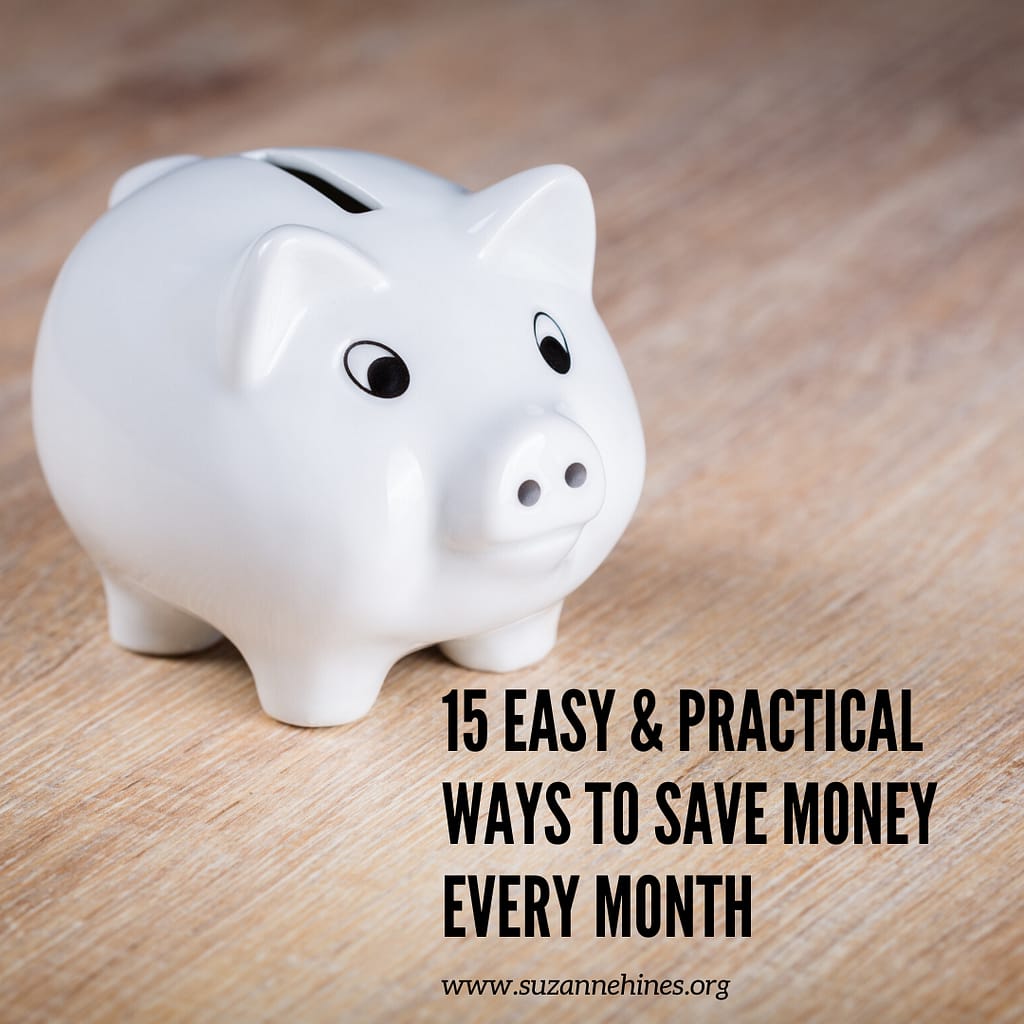This month is all about a spending freeze in our home. We are taking the month of February to freeze up our cash flow in order to evaluate where our money is going, where it should be going, and where it shouldn’t be going. I’ve found that it’s so easy to not realize just how much we are spending each day/week/month. If you had asked me how much I spent on Amazon last month, I would have guessed less than $50. I didn’t spend more than $15 here and there. But when I wrote down the total, it ended up being over $100! Color me shocked. It was a great reminder that I need to know where our money is going. (You should try this! Write down how much you think you spent on Amazon in January. Then go to your order history and add up how much you actually spent. Were you close?)
Please hear me out- there is nothing wrong with spending the money that we have. Of course, there is always the chance to step back and examine our hearts and see if there are wrong motivations for spending that money. It’s important to make sure that we aren’t living according to our money. Saving the maximum amount of dollars is not always the goal in life. God has given us freedom in this area, and it is ok to spend money on our own enjoyment.
On the other hand, it is also incredibly helpful to do a spending freeze month. It has opened my eyes to how often I spend money without thinking about it (especially online!), how quickly things add up, and how hard it is to have the actual self-control to just NOT spend. It truly opens my eyes to what is a NEED and what is a WANT. Spoiler alert: We actually don’t have as many “needs” as I think we have when it really comes down to it!

I know that there are probably one thousand ways to save money. I am NOT a moving saving expert, but I am more than happy to share our experiences on what has worked the best for us. I don’t cut coupons or use special apps, or even try to shop sales and deals. Instead, I try to focus on a sustainable lifestyle where the small choices that I make add up to big changes in saving money. If coupons and deals work for you, then continue to do that!
Saving money is different for everyone based on their needs/lifestyle/location/income/strengths and passions, so it’s important to find what works for YOU and do it.
Here are the top 15 ways that our family saves money:
15. Monthly subscriptions.
We all have them. Those websites or networks or subscriptions that are ONLY $10 a month! Woohoo! Well, that’s $120 a year. And then if we have three or four of them, it really starts to add up! I have found that it really helps to cut back on these. We don’t receive any monthly subscription boxes or meal services, and we have decided to choose just two streaming networks (Amazon Prime and Disney+). Instead of trying to cut everything out in this category, choose ONE or maybe two subscription services. After six months, switch it up so that you get to try something different!
14. Use local resources
We have SO MANY amazing resources in our community. I never have to look too far to find a free event or activity for the kids. I find the library and the local park systems to be the BEST resources! The library not only has free books, movies
13. Children do not require excessive spending
Do children cost money? Absolutely. Clothes. School. Daycare. Activities. Food. Diapers. Toys. Shoes. The list goes on and on. But, friends….it is possible to make decisions to not spend the maximum amount on these things. Buying used or accepting hand me down baby equipment and clothing has saved us several hundred dollars. During the little years, we have chosen to not sign our children up for any activities. Once they get to the age where they want to sign up for activities, we limit the number of activities they can do (one per child). Yes, saying no to our children is hard. As they get older, they will start to realize that other families do things differently than ours. They will start to ask why they can’t do x or sign up for y. Teaching our children at a young age that our family does not have to KEEP UP with everyone else is an extremely important life lesson. Not an easy one. But an important one.
12. Pay Cash for Vehicles
One way that we save money every month is by not having a car payment. We tend to buy our vehicles new and pay cash for them.
11. Stick to the lists.
I find it extremely helpful to make lists for things. Obviously, this applies to grocery shopping – making a shopping list based on meal planning always helps to keep unneeded items out of the cart and therefore off of the grocery bill. But I also find it helpful to make other lists, too. Lists of home decor that I might want. Lists of things that I need to buy on Amazon. Having a list helps me to not randomly spend on things that I didn’t know I needed until the very moment I laid eyes on it.
10. Cook from scratch instead of buying pre-made meals and ingredients
Growing up, my Mom made everything from scratch. I mean….she didn’t even have access to cream of chicken soup. Remember, that anything that is pre-made costs a little bit more. That’s not necessarily a bad thing, but it is something to keep in mind while trying to save money! Buying premade meatballs is more expensive than buying the beef and making it myself. Buying individually boxed raisins is more expensive than buying a container and serving individual portions. Making white sauce from kitchen ingredients is cheaper than buying a can of cream of mushroom soup.
9. Learn to live with it (or rather…live without it!)
So much of saving money is a mentality. It’s not always easy or fun to live without things, but I have found the mentality that I can wait until the right price comes along has served us well over the years. For example, we waited three years to find the dining room table that I loved. I knew what I wanted but was not able to find the price that I wanted. Finally, I found it….and for FREE. Yes, this means a lot of sitting around waiting for the “right” piece to just come along. But I’ve often found that as time goes on, my taste and budget change and I find that what I had wanted SO BADLY is not something that even interests me anymore. This is also where having a list comes in handy. Is the item really on my list? Do I still want the item on my list? Hm.
8. We don’t drink. I know this seems small, but we have learned that we save a lot of money by simply not drinking. Beer, wine, soda, flavored waters, even juice…all of that can add up! We have nothing against alcohol (in moderation), but we have realized that by simply not getting into the habit of buying drinks, we save money.
7. Eating Out.
Cutting back on eating out has helped our budget tremendously. In our family, we define “eating out” as any meal that we do not have to prepare at home, so Little Ceasers and Chikfila count as “eating out”. Eating out is so necessary some nights, and it’s a lot of fun, so we don’t need to cut it out completely. But limiting the amount we do has helped save a decent amount of money.
6. Meal Plan and Groceries.
Every month, I sit down and plan out my meals for the month. Then every week before I leave for my shopping trip, I write down the needed ingredients. While I shop, I do my best to stick to the list. I do all my grocery shopping at Aldi, which truly helps me save money on my grocery budget AND curb the desire to wander all around the store and throw random, extra things in my cart.
5. Pack lunches
Theo usually takes leftovers to work and snacks from the cabinet in order to avoid buying food while on shift. For Tera, I will pack leftovers or a sandwich in her lunch. I try to avoid buying pre-made lunches like lunchables, but I will often look at items like that for inspiration in packing lunches. When leaving the house for a morning or afternoon, I’ll make sure to grab some to-go snacks like granola bars to keep the kids satisfied until we can get back home.
4.Say YES to hand me downs
I know I already mentioned this in the part about clothing my children, but I have also found hand-me-downs to be helpful for furniture and my own clothing. We have saved a lot of money by taking some things that other people don’t want anymore.
3. Electric bills.
Obviously, electric bills will change depending on where one lives and what company one uses. Sometimes the factors affecting this cost are almost entirely out of our control. But oftentimes we can cut down on the electric bills by turning off lights, turning the heat down a notch or two and hanging clothes to dry instead of using the dryer. In the summer, we try not to use our air conditioning, although we do sometimes turn it on in the evening to cool the house down for sleeping.
2. Internet and phone bills
Theo is very good about calling around and comparing prices. He is also very good about calling companies and asking for lower rates. Somehow this has served us well. We have chosen the lowest streaming speed for our internet and we find that it works just fine for our
For our phones, we have chosen to go with a network called PureTalk. We pay less than $50 a month for our two phones- talk/text and data (it does have a limit but it serves to keep me accountable to not using my phone while out and about).
I know this is not a novel concept nowadays, but we also don’t pay for cable or any TV service besides the two mentioned above (Amazon Prime and Disney+).
1. Pay Yourself First.
With each paycheck, the first thing we do is automatically withdraw a certain amount for saving/investing. This seems backwards, as most budgets ask that you budget all your bills and spending FIRST, then put the remaining into savings. Well, we were finding that we very rarely had much remaining to put into savings when we operated that way. Instead, we “pay ourselves” first by putting a chunk of money into savings. Then, we budget for groceries, spending, and bills with what we have left. That creates an “artificial environment of financial scarcity”, meaning that after we are responsible to pay rent, bills, groceries, etc, we can spend the rest how we want.
You might have noticed something about this entire list. Everything on this list is a small thing that doesn’t seem like it would make a huge difference. I mean, what does a few cents on the grocery bill really matter? Does one degree on the thermostat really make a difference? I would say that YES, it does. All of those little things add up and doing a lot of small things to save money really ends up making a difference.
So what about you? What are some ways that you save money? Did you learn anything from my list?
